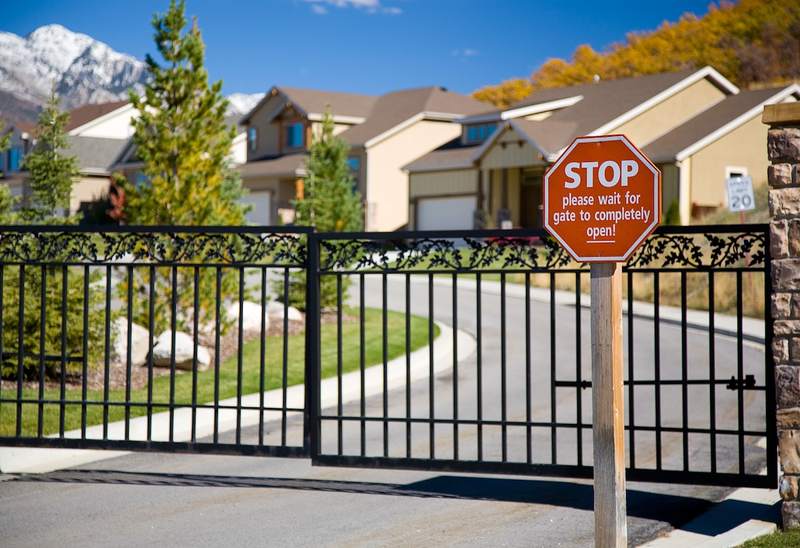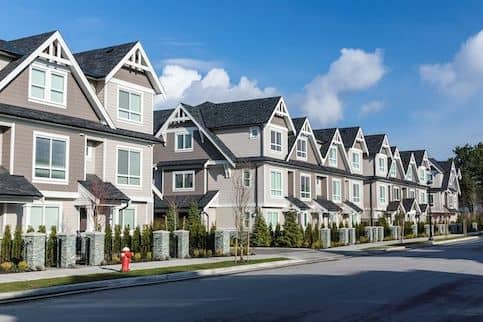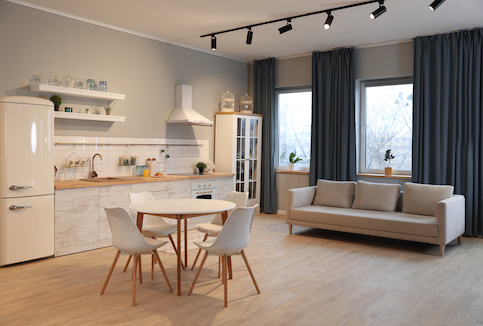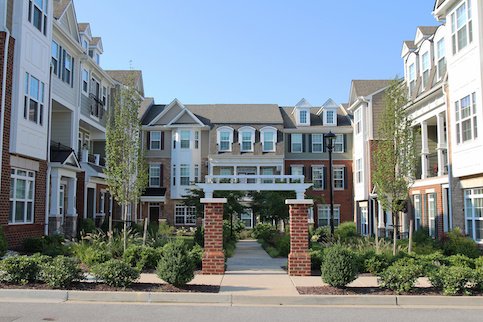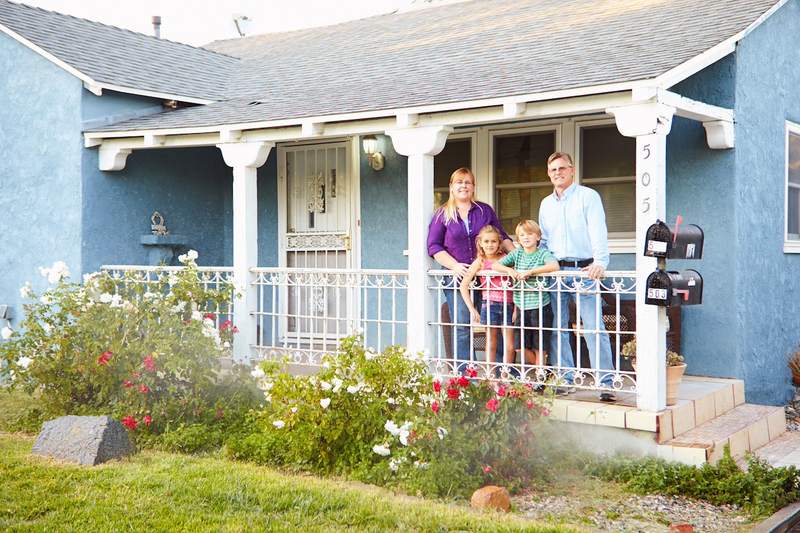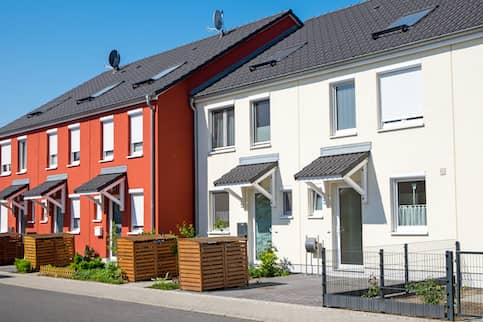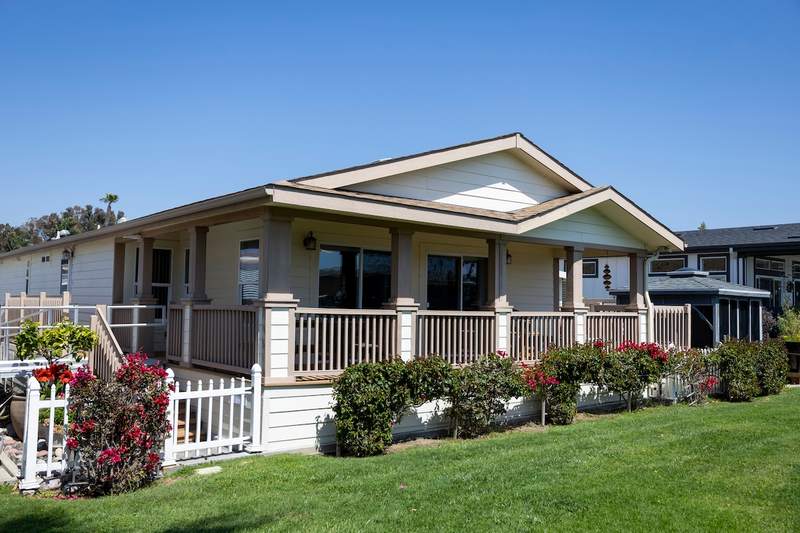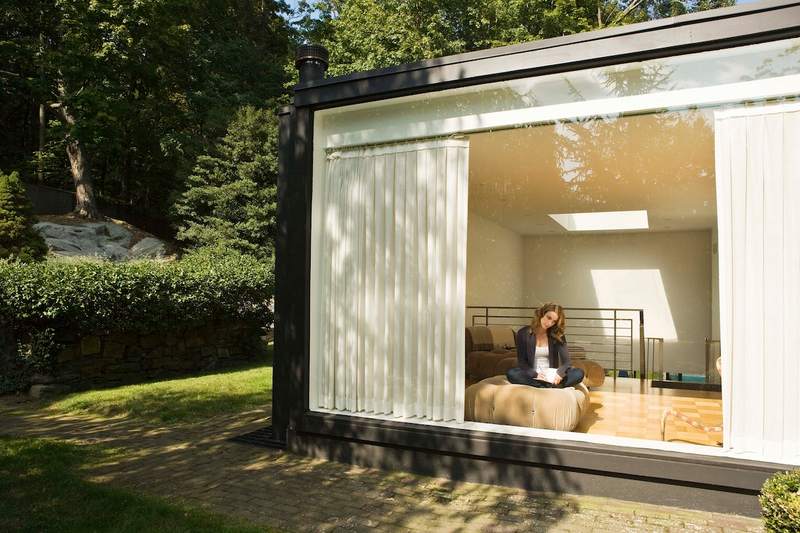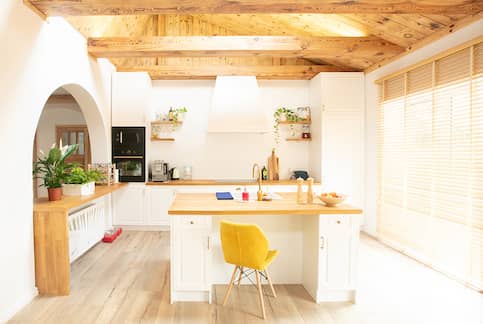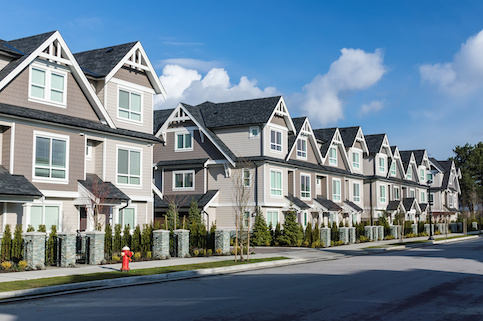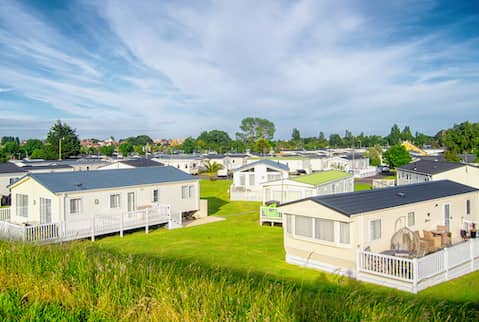A gated community is a walled or fenced neighborhood that allows only residents and their guests to enter through secure gates. Gated communities offer residents more privacy and security than traditional neighborhoods. They also often offer luxury amenities and provide a sense of community. However, homes in gated communities can be expensive, and some residents may find them isolating. Here’s what you need to know about the pros and cons of a gated community.
Key Takeaways:
- Gated communities are enclosed residential neighborhoods that are accessible only to residents and their guests.
- Many people choose to buy a home in a gated community because they offer more privacy, security, and amenities.
- Buying a home in a gated community can be expensive, with ongoing costs and restrictions to consider.
What Is A Gated Community?
A gated community is an enclosed residential area accessible only through gates that admit only residents, their guests and other approved visitors. Gated communities often are found in affluent areas, though they also can be geared toward specific populations such as seniors or golf enthusiasts.
A homeowners association manages and pays for the community’s security equipment and personnel. All residents pay dues to the HOA, which also manages and pays for community amenities such as a swimming pool, park, tennis court or clubhouse. The HOA also establishes community rules designed to protect the area’s character and property values.
Gated communities differ in several ways from apartments or condominiums, which usually are more compact and exist within a single building or property. Gated communities also usually offer more security, exclusivity and amenities. Homes in gated communities usually are more expensive than other home types.
What’s Your Goal?
Buy A Home
Discover mortgage options that fit your unique financial needs.

Refinance
Refinance your mortgage to have more money for what matters.
Tap Into Equity
Use your home’s equity and unlock cash to achieve your goals.
A Brief History Of Gated Communities
Gated communities have existed for thousands of years. People in ancient times built gates and walls around their homes to protect against enemies and invaders.
The first known gated communities in the Americas were the fort towns Spanish settlers built in the Caribbean. Residential gated communities as we know them today first appeared in cities like New York and St. Louis in the late 1800s as affluent homeowners sought to insulate their homes from surging urban populations.
Gated communities became more common in the second half of the 20th century, spreading to middle-class neighborhoods. Today, there are roughly 20,000 gated communities in the United States that nearly 9 million people call home.
Ready To Become A Homeowner?
Get matched with a lender that can help you find the right mortgage.
Pros Of Living In A Gated Community
Let’s look at the pros and cons of a gated community to consider before buying a home in one.
More Privacy
One of the top reasons home buyers choose gated communities is they’re more private. The only people who can access the community are the residents, their guests, and approved visitors such as maintenance workers. The gates keep uninvited visitors and solicitors from knocking at your door, driving past your home or peeking in your window.
More Security
The walls and gates that surround the community help keep out uninvited guests, passersby, potential intruders, troublemakers, and even some wild animals. A gated community also may have a 24-hour security guard and surveillance cameras to help monitor the neighborhood and respond quickly to any problems.
Amenities
Gated communities often provide amenities for residents to enjoy, such as:
- A swimming pool
- A fitness center
- Recreation centers
- Parks
- A playground
- Basketball courts
- A golf course
- Tennis courts
- Hiking trails
- Jogging and bike paths
- A clubhouse
Reduced Traffic
Gated communities prevent unnecessary traffic. The vehicles you do see in a gated community typically belong to residents, their guests, deliveries, and maintenance workers. This helps make the neighborhood safer, particularly for children and pets, as well as reducing vehicle noise and emissions that reduce air quality.
Higher Property Values
Homes in gated communities tend to have higher fair market values due to the perks and amenities they offer. The American Real Estate Society found that homes in gated communities typically sell for an average of $30,000 more than homes in traditional neighborhoods.
Sense of Community
A gated community can offer more of a sense of belonging. Amenities like swimming pools, tennis courts, and hiking paths can bring together like-minded residents. Some gated communities are geared toward specific groups, such as golfers or retirees. If your neighbors have similar interests and hobbies or are at a similar stage in life, that can make residents feel more connected.
Parking
Because the neighborhood is accessible only to residents and approved guests, there’s less demand for parking. You won’t have people who aren’t residents parking along the streets within your community to visit local shops and businesses.
Take The First Step To Buying A Home
Find a lender that will work with your unique financial situation.
Cons Of Living In A Gated Community
While gated communities offer many perks, they also have drawbacks to consider.
HOA Fees And Maintenance Costs
You’ll need to pay HOA fees to cover the cost of maintaining shared spaces and the amenities and services that the community provides. Homes in gated communities already come with a higher price tag, and HOA fees only add to the cost of living there. If there’s damage to the community, a new feature is added or renovations are needed, your HOA fees can increase to cover these costs.
HOA Rules And Limits On Property Use
HOAs also establish and enforce rules that all residents in the community must follow. If you want to paint your house a different color, build an addition or install solar panels, your HOA must approve. HOAs also have strict rules about guests, pets and noise, which can restrict how you can entertain guests or throw parties.
Inconvenient For Guests And Deliveries
The security features that keep your gated community safe can be a hassle for guests and deliveries. You may need to send a gate code to the driver every time you order food or a package is delivered. If the gate malfunctions, that could be an added headache. In some gated communities, you’ll need to notify a security guard every time you expect guests.
Potential Delays For Emergency Services
It’s one thing if there’s a delay to your sandwich delivery or you must meet your friend at the gate to let them in. However, if you need emergency services and they can’t access the community, that’s a more serious problem.
Limited Diversity And Potential For Social Segregation
It’s more expensive to buy and own a home in a gated community. As a result, the residents there typically will be from a similar socioeconomic status. This can significantly limit diversity and segregated the community from surrounding neighborhoods. While amenities can help residents connect, they can also have the opposite effect. Those who don’t share similar interests or participate in community sports leagues can feel excluded.
Gated Communities Still Face Some Crime
Gated communities with a security system and guards are considered safer than neighborhoods that don’t. However, there still can be crime in gated communities committed by intruders or even other residents.
Pros And Cons Of Gated Communities
One way to decide if a gated community is right for you is to weigh the advantages and downsides side by side.
Gated Communities Pros And Cons
| Pros | Cons |
|---|---|
| More privacy | More expensive |
| Access to amenities | HOA fees |
| HOAs manage neighborhood upkeep | HOA restrictions |
| Less nose | Takes more time to get in |
| Less traffic | Harder for guests to access |
| Higher home values | Delayed emergency services |
| Added safety | Potential delivery complications |
| More parking | There can still be crime |
| A sense of community | Restrictions on home improvements |
FAQ
Here are answers to common questions about gated communities.
– Home maintenance requirements.
– Exterior paint colors require approval.
– Noise must not exceed a certain volume.
– Limits on pets.
– Certain structures, like a fence or garage, require approval.
– Major exterior renovations require approval.
The Bottom Line
A gated community can be a good option for home buyers who are seeking more privacy, security and amenities than a traditional neighborhood can offer. However, these perks come at a cost, so be sure you can afford the upfront and recurring costs. Also, gated communities are managed by homeowners associations that set rules that can limit what you can do with your home.
More From Quicken Loans:

Rory Arnold
Rory Arnold is a Los Angeles-based writer who has contributed to a variety of publications, including Quicken Loans, LowerMyBills, Ranker, Earth.com and JerseyDigs. He has also been quoted in The Atlantic. Rory received his Bachelor of Science in Media, Culture and Communication from New York University. He also completed the SoFi/Coursera Fundamentals of Personal Finance Specialization consisting of five courses: Introduction to Personal Finance, Saving Money for the Future, Managing Debt, Fundamentals of Investing, and Risk Management in Personal Finance.
